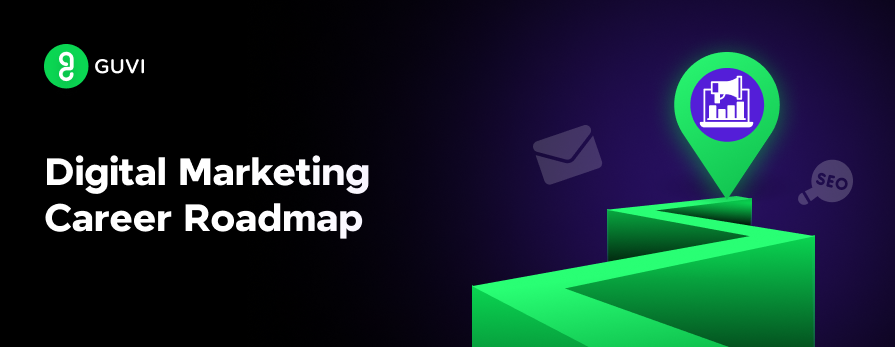
Complete Digital Marketing Career Roadmap
Mar 15, 2025 8 Min Read 7239 Views
(Last Updated)
Digital marketing involves promoting products or services using digital channels like search engines, social media, email, and websites. It integrates data, analytics, and algorithms to deliver personalized content to targeted audiences, aiming to drive sales, increase brand awareness, and build customer loyalty.
With the rapid digital transformation in India, the demand for skilled digital marketers is surging. Over 87% of India’s population is projected to be online by 2025, offering tremendous opportunities for businesses to tap into a connected consumer base.
After thorough research, I have drafted this digital marketing career roadmap to help you understand everything you need to learn to build a career in digital marketing. We will cover everything from the skills required to the different roles and their respective salaries.
Table of contents
- Why Digital Marketing is in High Demand
- Core Skills Required for Digital Marketing
- Search Engine Optimization (SEO)
- Pay-Per-Click (PPC) Advertising
- Content Marketing
- Social Media Marketing
- Email Marketing
- Data Analysis
- Marketing Automation
- Conversion Rate Optimization (CRO)
- Step-by-Step Digital Marketing Career Roadmap
- Understand the Basics of Digital Marketing
- Learn Digital Marketing Tools
- Build a Strong Online Presence
- Gain Certifications
- Get Hands-On Experience
- Specialize in a Niche
- Network with Industry Professionals
- Track Performance and Continuously Improve
- Keep Learning and Adapting
- Build a Portfolio
- Career Levels, Job Roles, and Salaries in Digital Marketing
- Entry-Level Roles
- Mid-Level Roles
- Senior-Level Roles
- Leadership Roles
- Educational Path for Digital Marketing
- Undergraduate Degrees
- Digital Marketing Certifications
- Takeaways…
- FAQs
- What is the roadmap for digital marketing?
- Can I become a digital marketer in 3 months?
- What is SEO in digital marketing?
- Is digital marketing very difficult?
- What are the 4 major types of digital marketing?
Why Digital Marketing is in High Demand
The demand for digital marketing professionals has soared in recent years, driven by several factors:

- Rise of E-commerce: The growth of online shopping platforms like Amazon, Flipkart, and smaller direct-to-consumer (D2C) brands has increased the need for digital marketers to drive online sales.
- Targeted Advertising: Traditional advertising methods are being replaced by more efficient, data-driven strategies that target specific consumer segments. Digital marketing allows companies to track customer behavior, analyze data, and optimize campaigns to maximize ROI.
- Growing Internet Penetration: With affordable smartphones and cheaper Internet access, digital platforms have become the primary mode of information consumption in India. Businesses need digital marketing experts to reach these users effectively.
- Personalization and Customer Engagement: Consumers expect personalized experiences. Digital marketing allows companies to engage customers at multiple touchpoints through email, social media, and mobile apps.
- Global Reach: Digital marketing enables businesses to reach customers beyond geographical boundaries. For instance, an Indian company can target users in the U.S. or Europe using paid search and social media campaigns.
This growing demand has translated into increased job openings for digital marketers across industries.
Core Skills Required for Digital Marketing
To succeed as a digital marketer, mastering various technical, analytical, and creative skills is essential. Each area plays a crucial role in ensuring the effectiveness of marketing strategies, allowing you to optimize campaigns, engage audiences, and drive business growth.
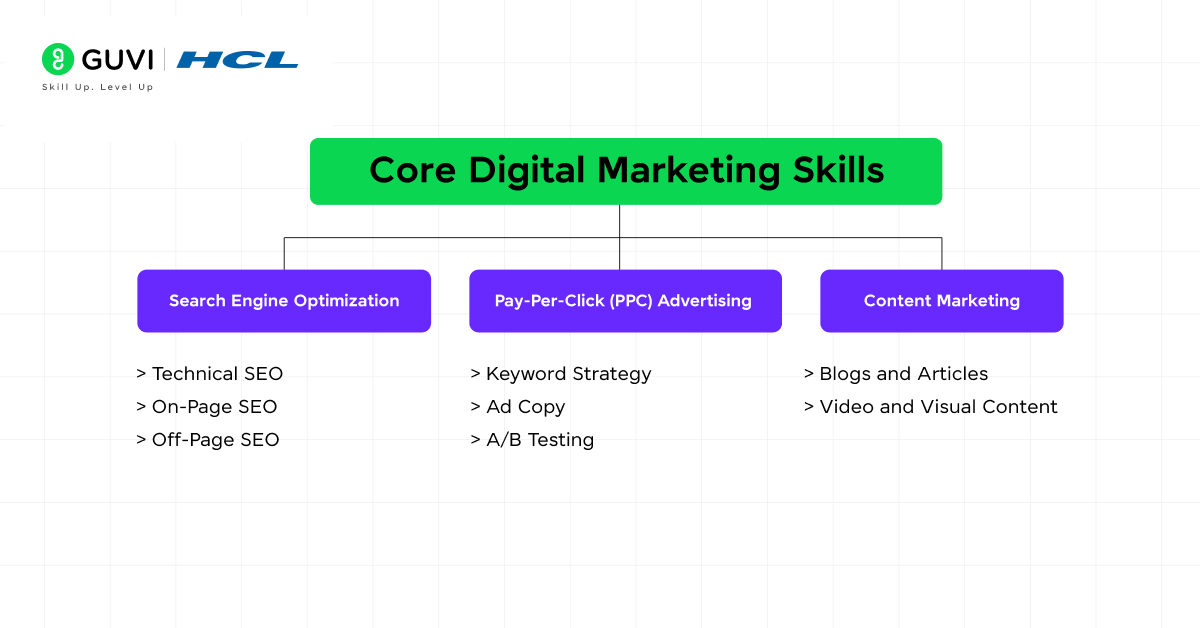
1. Search Engine Optimization (SEO)
SEO is the backbone of digital marketing, focusing on enhancing a website’s visibility on search engine results pages (SERPs). It includes several components:
- Technical SEO: Involves optimizing the website’s architecture, including sitemaps, speed, mobile-friendliness, and structured data.
- On-Page SEO: Targeting specific keywords in content, headers, meta tags, and URLs to improve rankings for relevant searches.
- Off-Page SEO: Building quality backlinks through guest posts, influencer collaborations, and content partnerships to increase site authority.
2. Pay-Per-Click (PPC) Advertising
PPC allows marketers to pay for top placement on search engines and social media platforms. Effective PPC campaigns depend on:
- Keyword Strategy: Identifying high-conversion keywords and using tools like Google Ads to bid for placement.
- Ad Copy: Writing compelling ads that entice clicks, with strong calls-to-action (CTA) such as “Shop Now” or “Get a Free Trial.”
- A/B Testing: Testing variations in ads to see which version delivers the best results in terms of click-through rate (CTR) and conversions.
3. Content Marketing
Content marketing focuses on creating valuable, informative, and engaging content to attract and retain audiences. This could include:
- Blogs and Articles: Writing detailed guides and informative pieces to improve SEO and attract organic traffic.
- Video and Visual Content: Creating video tutorials, infographics, and engaging social media visuals to capture audience attention.
4. Social Media Marketing
Social media platforms like Facebook, Instagram, and LinkedIn are crucial for building brand awareness and engaging with customers. Social media skills include:
- Community Management: Engaging with followers, responding to comments, and maintaining brand voice.
- Ad Campaigns: Running paid advertisements on social media platforms to reach specific demographics.
- Analytics: Measuring the performance of social media campaigns to optimize future efforts.
5. Email Marketing
Email marketing remains one of the most cost-effective channels, offering a high return on investment (ROI). Skills include:
- List Segmentation: Dividing email lists based on demographics, purchase history, or behavior to send personalized messages.
- Automation: Setting up drip campaigns that send pre-written emails triggered by user actions, such as signing up for a newsletter or abandoning a shopping cart.
- A/B Testing: Experimenting with different subject lines, CTAs, or email layouts to improve engagement rates.
6. Data Analysis
Digital marketing thrives on data. Analyzing metrics like website traffic, conversion rates, and customer behavior helps to fine-tune marketing strategies. Core skills include:
- Traffic Analysis: Understanding how users arrive on the website and what pages they visit to optimize for better conversion.
- Funnel Analysis: Tracking user journeys through the sales funnel and identifying drop-off points.
- Reporting: Creating detailed reports using tools like Google Analytics to inform business decisions.
7. Marketing Automation
Marketing automation streamlines repetitive tasks like email follow-ups, lead scoring and content distribution. Key areas include:
- Lead Nurturing: Sending tailored content to potential customers based on their behavior or stage in the sales funnel.
- Sales Integration: Syncing marketing data with sales teams to prioritize high-quality leads.
- Campaign Management: Automating multi-channel campaigns to engage customers across email, social, and web platforms.
8. Conversion Rate Optimization (CRO)
CRO focuses on improving the percentage of visitors who take a desired action on a website, such as making a purchase or signing up for a newsletter. This involves:
- A/B Testing: Testing different versions of a webpage to determine which design or content performs better.
- Heatmaps and User Behavior Analysis: Using tools like Hotjar to track where users click, scroll, and interact on a page to identify areas for improvement.
- Landing Page Optimization: Simplifying forms, enhancing CTAs, and ensuring mobile-friendliness to improve conversions.
Let’s summarise all the skills we went through in the form of a table:
| Skill Area | Key Competencies | Tools |
| Search Engine Optimization (SEO) | Expertise in technical SEO, on-page and off-page optimization, keyword research, and backlink strategies | SEMrush, Moz, Ahrefs |
| Pay-Per-Click (PPC) | Managing paid search campaigns, optimizing keyword bids, and analyzing ad performance | Google Ads, Bing Ads |
| Content Marketing | Creating compelling, engaging content, and developing strategies for blogs, videos, and social posts | WordPress, HubSpot, Grammarly |
| Social Media Marketing | Planning social strategies, managing platforms, and optimizing engagement for maximum reach and ROI | Hootsuite, Buffer, Facebook Ads Manager |
| Email Marketing | Crafting email campaigns, list segmentation, automation, and A/B testing to boost open and click rates | MailChimp, ActiveCampaign, SendinBlue |
| Data Analytics | Interpreting traffic data, conversion rates, customer behavior, and campaign performance | Google Analytics, Tableau, Data Studio |
| Marketing Automation | Automating repetitive tasks like email, lead scoring, and campaign management to improve efficiency | HubSpot, Marketo, Salesforce |
| Conversion Rate Optimization (CRO) | Optimizing landing pages and websites to enhance user experience and boost conversion rates | Unbounce, Optimizely, Hotjar |
Step-by-Step Digital Marketing Career Roadmap
To become a successful digital marketer, you need to follow a structured approach that equips you with essential skills and practical experience. Here’s a detailed step-by-step roadmap:

1. Understand the Basics of Digital Marketing
Start by gaining a solid foundation in digital marketing principles. This includes familiarizing yourself with key areas like:
- SEO (Search Engine Optimization): Understanding how search engines rank content.
- SEM (Search Engine Marketing): Learning about paid advertising on platforms like Google Ads.
- Social Media Marketing: Engaging with audiences on platforms like Facebook, Instagram, and LinkedIn.
2. Learn Digital Marketing Tools
Digital marketers rely on a variety of tools for campaign management, analytics, and optimization. Mastering these tools will give you an edge. Important tools include:
- Google Analytics: For tracking website performance.
- SEMrush or Ahrefs: For keyword research and SEO tracking.
- HubSpot: For CRM and marketing automation.
3. Build a Strong Online Presence
To demonstrate your expertise, create a personal brand or blog. This is an opportunity to:
- Create a Website: Showcase your knowledge through articles, case studies, and marketing strategies.
- Engage on Social Media: Regularly post insightful content, engage with other professionals, and build a following.
4. Gain Certifications
Certifications from recognized platforms validate your skills and improve your job prospects. We will discuss educational pathways at length in the later sections. Some important certifications include:
- GUVI’s Advanced Digital Marketing Course: This program offers hands-on experience and prepares you for real-world challenges.
- Google Ads Certification: For proficiency in paid search marketing.
- HubSpot Content Marketing: For content creation and distribution..
5. Get Hands-On Experience
Practical experience is key to mastering digital marketing. Engage in real-world projects, either through internships or freelance opportunities. Focus on:
- Campaign Creation: Develop campaigns across various platforms like Google Ads or Facebook Ads.
- SEO Implementation: Optimize websites for better ranking.
- Content Strategy: Create and distribute high-quality content.
6. Specialize in a Niche
As you gain experience, consider specializing in a specific area of digital marketing. Some options include:
- SEO Specialist: Focus on optimizing websites for search engines.
- PPC Manager: Specializes in managing paid ad campaigns.
- Content Strategist: Focus on content creation, strategy, and distribution.
7. Network with Industry Professionals
Networking is vital for staying updated with industry trends and finding career opportunities. Attend webinars, and conferences, go through case studies, and join digital marketing groups on LinkedIn or other platforms. This will help you:
- Gain Industry Insights: Stay current with trends and algorithm changes.
- Collaborate on Projects: Partner with other marketers on freelance projects or campaigns.
For example, you could attend digital marketing conferences like MozCon or INBOUND and join communities like Growth Hackers or Marketers on LinkedIn.
8. Track Performance and Continuously Improve
Digital marketing is data-driven, so always measure the success of your campaigns and refine your strategies. Focus on:
- Key Performance Indicators (KPIs): Track metrics like conversion rates, cost-per-click (CPC), and return on ad spend (ROAS).
- Optimization: Continuously test different strategies to improve campaign performance (A/B testing, landing page optimization, etc.).
9. Keep Learning and Adapting
Digital marketing evolves rapidly with new tools, algorithms, and consumer behavior trends. To remain competitive, you need to:
- Stay Updated: Follow industry blogs like Search Engine Land or Neil Patel to keep up with new trends.
- Upskill Continuously: Regularly attend online courses and workshops to improve your knowledge in emerging areas like AI in marketing, voice search, or data analytics.
10. Build a Portfolio
Finally, showcase your expertise and results in a professional portfolio. Include case studies, campaign performance data, and client testimonials to demonstrate your field success.
A well-rounded digital marketing portfolio should highlight your real-world projects with measurable results. Focus on:
- Real Projects: Include client campaigns or personal projects, showcasing strategies like SEO, PPC, or social media management.
- Metrics and KPIs: Use data to show traffic growth, conversion rate improvements, or cost-per-click (CPC) reductions to demonstrate the success of your efforts.
- Case Studies: Provide detailed case studies showing how you solved marketing challenges, outlining the process and results.
Career Levels, Job Roles, and Salaries in Digital Marketing
The digital marketing field offers various roles depending on experience and expertise. Here’s a breakdown of career levels, typical job roles, and their salaries at each stage:
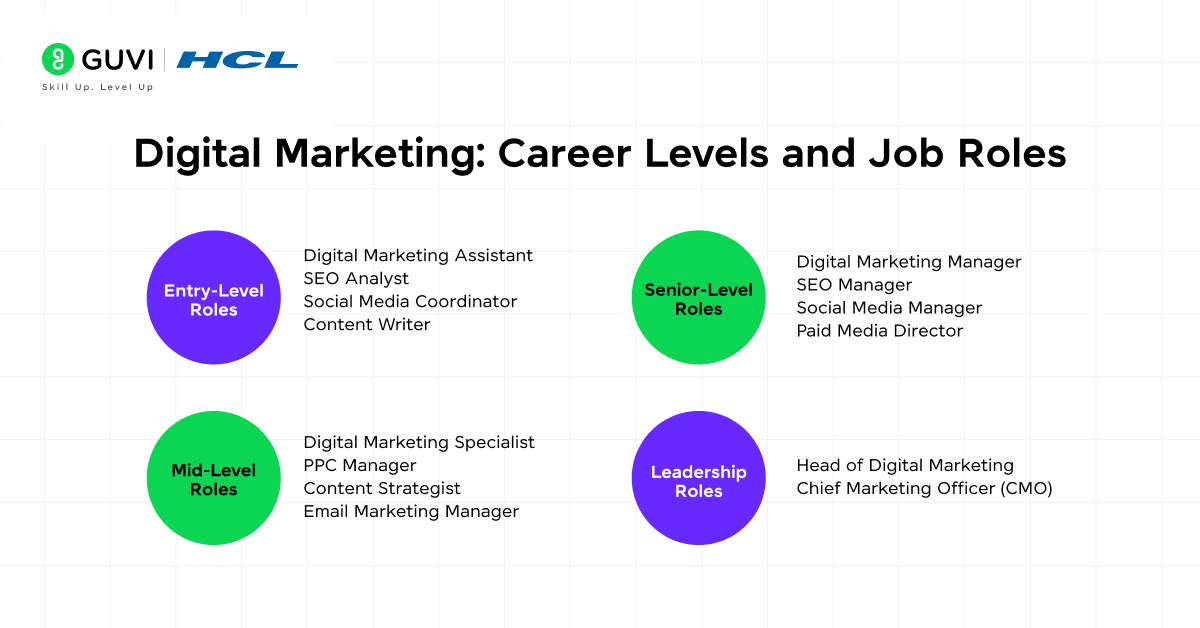
1. Entry-Level Roles
These roles are ideal for fresh graduates or those new to digital marketing. They primarily focus on executing day-to-day tasks under the supervision of more experienced marketers:
- Digital Marketing Assistant: Supports senior team members with campaign execution, keyword research, and content creation.
- SEO Analyst: Focuses on optimizing website content for search engines, performing keyword research, and improving site rankings.
- Social Media Coordinator: Manages social media accounts, schedules posts, and engages with followers.
- Content Writer: Produces blog posts, articles, and other web content aimed at engaging and educating audiences.
Salary: Entry-level digital marketers in India typically earn between ₹3 LPA to ₹5 LPA.
2. Mid-Level Roles
Mid-level positions require more specialization and experience in handling full campaigns or managing small teams. Professionals at this level usually take ownership of projects and deliver results.
- Digital Marketing Specialist: Manages multiple marketing channels (SEO, PPC, social media) and creates integrated campaigns.
- PPC Manager: Oversees paid advertising campaigns, optimizing budget spend, and increasing ROI.
- Content Strategist: Develops and executes comprehensive content marketing strategies, including blog posts, videos, and social content.
- Email Marketing Manager: Designs and manages email campaigns, list segmentation, and automation workflows to improve open rates and conversions.
Salary: Mid-level professionals typically earn between ₹6 LPA to ₹12 LPA in India.
3. Senior-Level Roles
Senior-level professionals are responsible for strategy, leading teams, and aligning digital marketing with overall business goals. These roles require extensive experience and a track record of successful campaigns.
- Digital Marketing Manager: Oversees all digital marketing activities, from strategy development to execution, and ensures alignment with business objectives.
- SEO Manager: Leads SEO strategies, ensuring high visibility on search engines, often managing a team of SEO analysts.
- Social Media Manager: Manages social media campaigns, engagement strategies, and overall brand presence on social platforms.
- Paid Media Director: Focuses on managing large-scale PPC campaigns, media buying, and optimizing ad spending for maximum ROI.
Salary: Senior-level professionals can earn between ₹15 LPA to ₹30 LPA in India, depending on experience and the company size.
4. Leadership Roles
At this level, professionals are responsible for overall digital marketing strategy and decision-making. They often interact with other department heads and report directly to the C-suite.
- Head of Digital Marketing: Leads the entire digital marketing department, overseeing strategy, budgets, and team performance across all channels.
- Chief Marketing Officer (CMO): While not exclusive to digital marketing, CMOs oversee all marketing initiatives, including digital, offline, and branding efforts. They are responsible for aligning marketing strategies with business objectives and managing large teams.
Salary: Leadership roles in India can offer salaries ranging from ₹30 LPA to ₹50+ LPA, depending on company size, industry, and location.
Now that we’ve discussed the various roles and their rewarding salaries, let me put forth ways in which you can gain the skills required to place yourself in these roles.
Educational Path for Digital Marketing
While a formal degree is not always required to enter the digital marketing field, having a structured educational background provides a solid foundation and credibility. Here’s a typical educational path for aspiring digital marketers:
1. Undergraduate Degrees
Many digital marketers begin with a bachelor’s degree in related fields like:
- Marketing or Business Administration: Provides an understanding of traditional marketing principles, consumer behavior, and market research.
- Communications or Journalism: Focuses on crafting persuasive content, an essential skill for content marketing, copywriting, and social media marketing.
- Computer Science: Offers technical knowledge useful in SEO, data analysis, web development, and marketing automation.
While not mandatory, a degree can help lay the groundwork for deeper learning in specific digital marketing areas.
2. Digital Marketing Certifications
Certifications are crucial for establishing your credibility and enhancing your technical knowledge in various digital marketing areas. Below are some top certifications, with more details on the course content and benefits:
A) GUVI’s Advanced Digital Marketing Career Program
- Course Content: This program provides a hands-on learning experience with modules in key areas such as Search Engine Optimization (SEO), Social Media Marketing, Email Marketing, and Pay-Per-Click (PPC) advertising. The curriculum focuses on practical applications, allowing you to work on real-life projects and campaigns. It also covers advanced tools like Google Analytics and Google Ads for data-driven decision-making.
- Benefits: The course is highly practical, equipping you with the skills needed to create, manage, and optimize marketing campaigns across various platforms. The hands-on experience makes it an excellent option for building a portfolio of real-world projects, which is highly valued by employers.
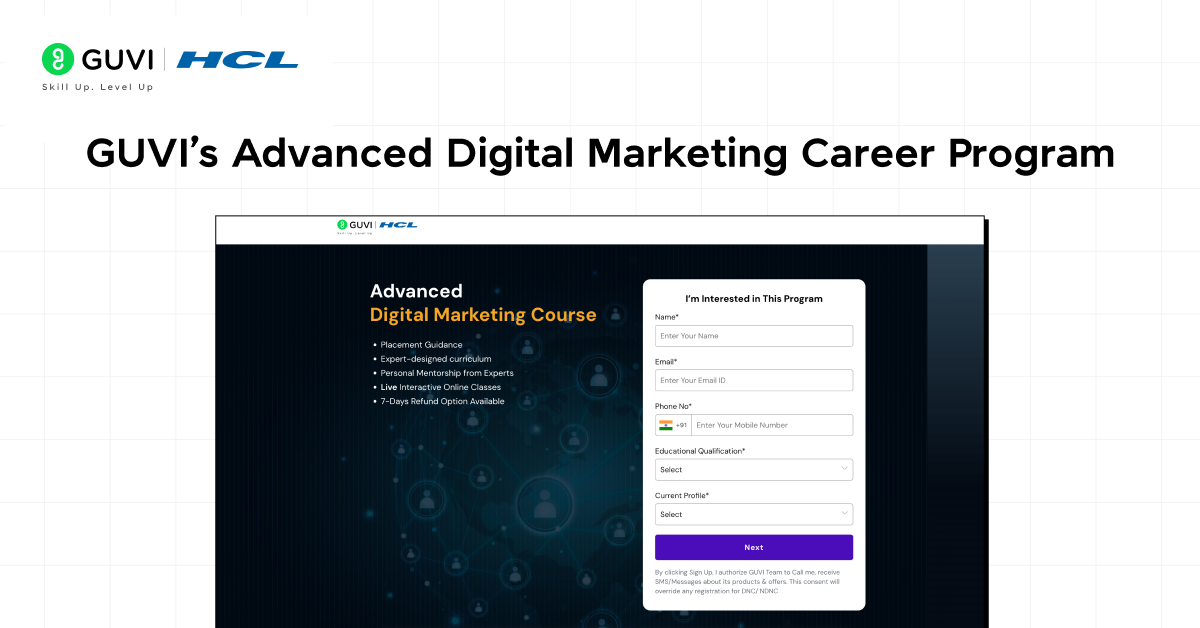
B) Google Ads Certification
- Course Content: This certification focuses on Google Ads and covers how to create, manage, and optimize paid advertising campaigns on Google’s platform. Topics include keyword research, ad creation, bidding strategies, and conversion tracking.
- Benefits: As Google Ads is the largest online advertising platform, this certification is essential for anyone looking to specialize in PPC advertising. It demonstrates proficiency in one of the most sought-after skills in digital marketing, helping you manage large-scale campaigns and maximize ROI.

C) Google Analytics Certification
- Course Content: This certification trains you to use Google Analytics, a vital tool for tracking and analyzing website performance. Topics include understanding audience demographics, setting up goals and conversion tracking, and leveraging data for decision-making.
- Benefits: The certification ensures you’re proficient in data interpretation, which is crucial for optimizing marketing strategies. Mastering Google Analytics helps in assessing campaign performance, user behavior, and overall website effectiveness, making it a must-have for performance-driven marketers.
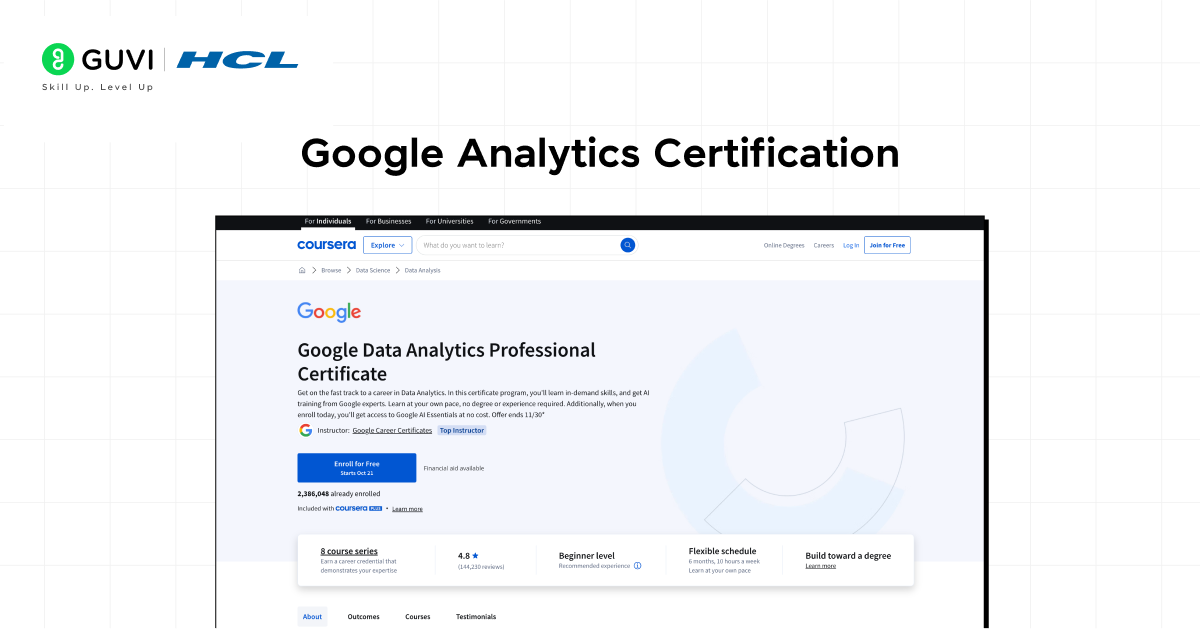
These certifications are highly recognized in the industry and are valuable additions to your resume. They not only improve your technical abilities but also make you a more competitive candidate in the digital marketing field.
Takeaways…
Digital marketing is a dynamic and fast-growing field, offering a wide array of career opportunities. To build a career in this competitive industry, you must gain a strong foundation through structured education, earning relevant certifications, and gaining hands-on experience as we have discussed at length above.
With the high demand for digital marketing professionals across industries, following a well-defined career roadmap ensures sustained growth and opens doors to exciting roles at every career level.
I hope this roadmap and article in general have been of great help to you and that it makes taking that first step a little bit easier, do let us know what you thought of it in the comments section below.
FAQs
A digital marketing roadmap includes learning SEO, content marketing, social media marketing, paid advertising, email marketing, analytics, and optimizing for conversions. Continuous skill development is essential. Read the article above for more information.
Yes, you can gain foundational digital marketing skills in 3 months by focusing on key areas like SEO, social media, and paid advertising, but mastery may take longer. What will make it genuinely possible is enrolling in a career program like GUVI’s.
SEO (Search Engine Optimization) is the process of improving a website’s visibility on search engines to attract more organic traffic through keyword optimization, content creation, and technical improvements.
Digital marketing is not inherently difficult but requires consistent learning and adaptation to changing trends and tools to succeed. And it gets easier when you have guides like us with knowledge and articles like these.
The four major types of digital marketing are:
1) SEO
2) Content Marketing
3) Social Media Marketing
4) Paid Advertising (PPC)

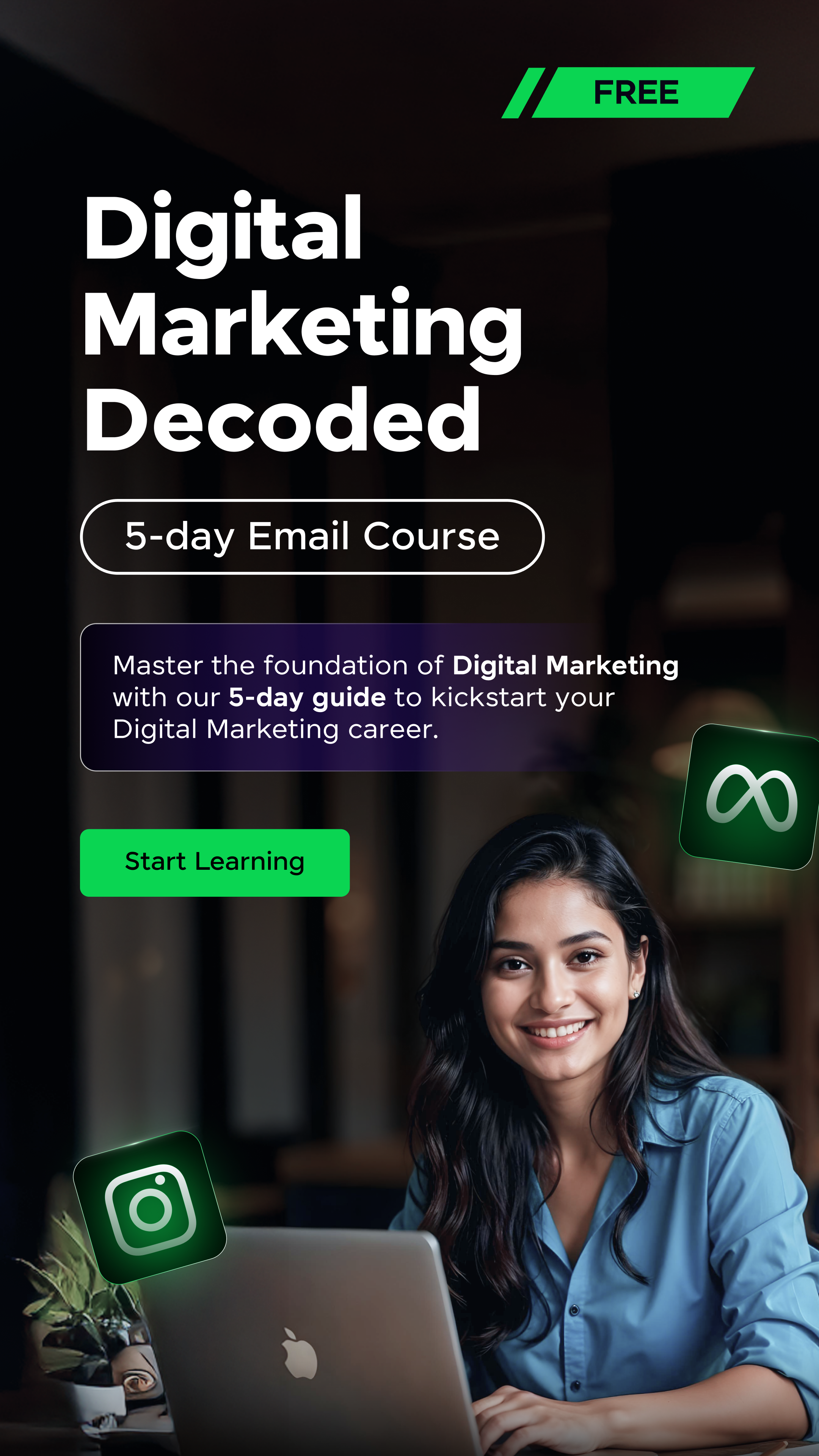





















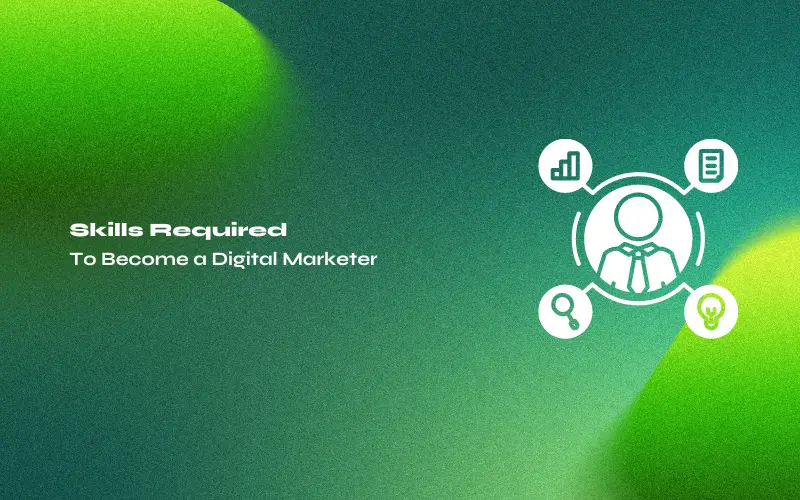



![Best Digital Marketing Courses [Free + Paid] 14 Best Digital Marketing Courses](https://www.guvi.in/blog/wp-content/uploads/2023/09/Best-Digital-Marketing-Courses.png)


Did you enjoy this article?